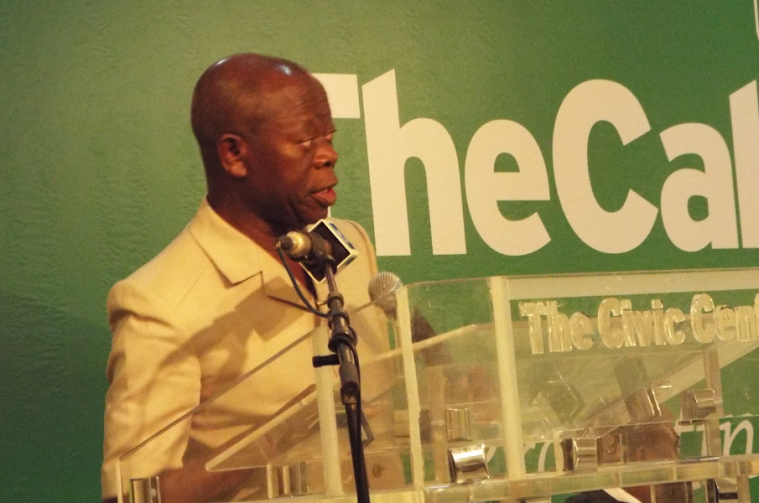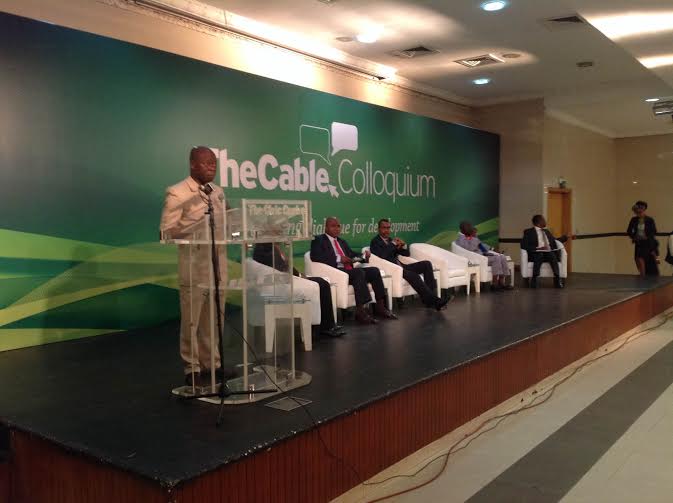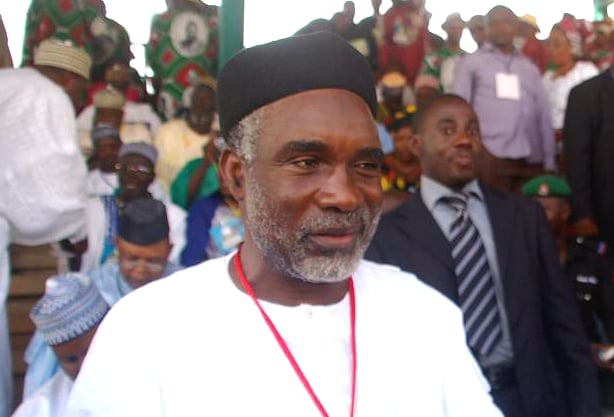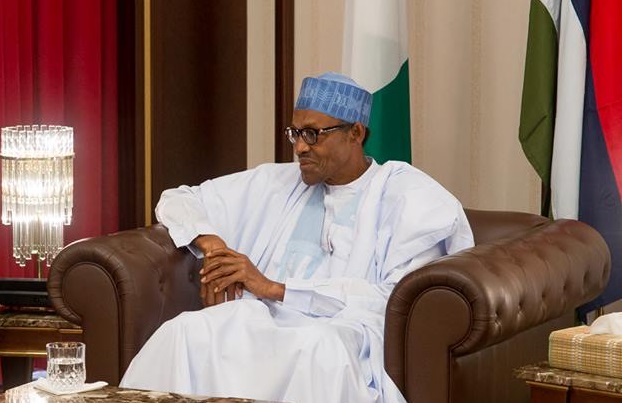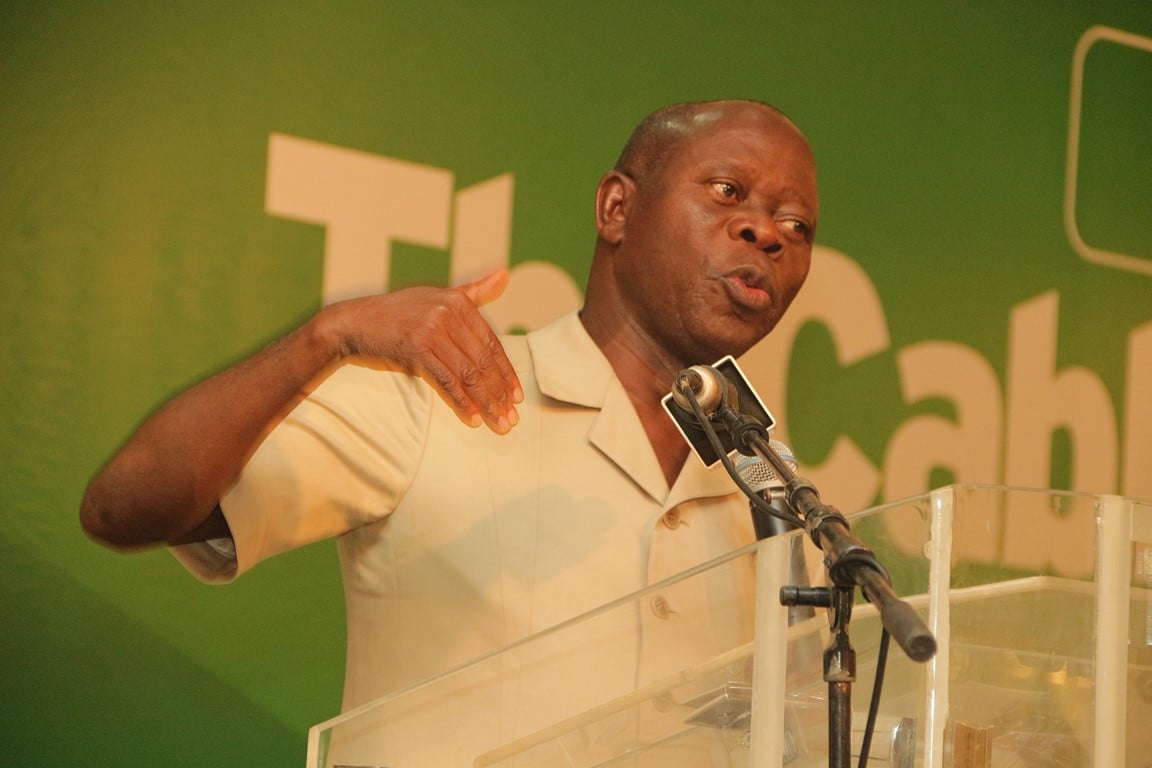Adams Oshiomhole, governor of Edo state, on Thursday described poor people as “the greatest economists in the world”.
Oshiomhole, who was the keynote speaker at TheCable Colloquium in Lagos, said the poor live within their means, despite the meager income that they earn.
“The issue of our national economic policies is not just a matter for experts; everybody is an economist. For example, if you ask me, I think that the greatest economists around the world, particularly in Nigeria, are the poor people,” he said.
“Have we spared a thought to address just one elementary question? How a worker who is on N18,000 a month, the official rate of N200 delivers him $80 a month. If you use the rate at the parallel market, then he will be left with $48 and yet the worker with his wife and children manage their budget without deficit. They pay their rent, send their children to school and a couple of other things all within N18,000.
Advertisement
“Now, if he balances without borrowing and typically this worker will agree that banks lend only to those who don’t need it, at least from the point of view of the poor, because they lend to those who have assets which they call collateral but the poor people have nothing to secure their facility and therefore they are out of the banking system, even when we create symbolic thing like micro credit and so on, it’s more fanciful on the book.
“They live within their income without lending from the formal or informal sector; that is why I say the poor, the poor woman in a typical rural Nigeria, is the most seasoned economist.”
Advertisement
The governor said it did not matter how much the Nigerian currency exchanged with the dollar, as long as the purchasing power of the naira is retained. He also accused the past government of contributing to the current economic situation by “not saving for the rainy day”.
“Who wants devaluation? Who has taken the naira to the court for trial? Who is prosecuting, and who is defending?” he asked.
“Everything was perfect or so it seemed when oil was $140 per barrel. There was no conversation about whether naira should be revalued upward. So if it had gone to N200, I suspect nobody would have invited us to say should naira not be revalued upwards.
“Afterall, when the current foreign exchange was fixed, the price of crude wasn’t what it is today. But I think what has triggered this conversation is the fact that a couple of things have happened in this environment, arising from decisions by politicians and their collaborators in the private sector within the community of the elites.
Advertisement
“And so oil, at $140 was good, we emphasised on the need to save for the rainy day. How best to save for a nation? Do you save cash or do you secure the future by investing in critical infrastructural needs to position the economy for growth and attract investors and investment?
“So the CBN now decided to take some measures, which are beginning to hurt some people and which perhaps have triggered this controversy, rather than the government, as it used to be in the past, indicating their intention to devalue. It is a section of the people that are behind this agitation. Who are they?
“The investment bankers who want to play on CBN bonds and other commercial papers with hot money that they can move in and out. They don’t want any interference, you can use your visa to restrict and regulate the movement of human beings, but the CBN mustn’t use any instrument to regulate the movement of dollar in or out of the country, because if you do that you are interfering with their calculation. And you are interfering with their own projection.
“And the business of speculation will come under severe pressure. So, I will submit that those who are prosecuting are investment bankers, those who make money by just playing on exchange rate. In all, let’s not look at the value of the naira with respect to other currencies, but how much it can buy at home.”
Advertisement
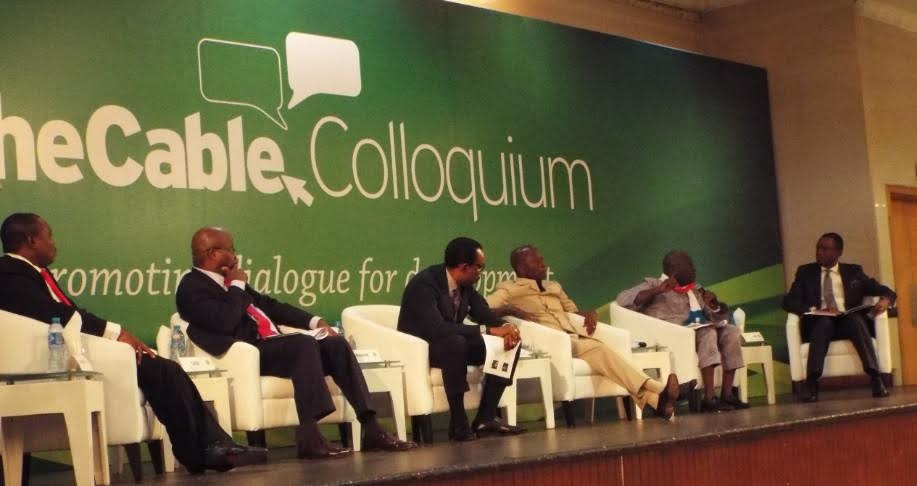
Earlier in his welcome address, Simon Kolawole, publisher of TheCable, said the programme was organised in order to expand the conversation on the economy.
Kolawole noted that the issue of devaluation had generated different reactions, expressing the belief that the policy dialogue would help in enlightening people not just on the exchange rate but the economy.
Advertisement
“When we set up TheCable, one thing we said we wanted to do was to be part of solving Nigeria’s problems; we don’t want to be part of the problems,” he said.
“Everybody has his own role to play. There are those who only want to complain that things are bad; they have their own role to play, and there are also people who want to be part of the solution.
Advertisement
“So, our own decision is that we are going to be part of the solution and here we are, holding our first colloquium, which is on the exchange rate.”
He added that personally, he had not been able to take a particular stand on devaluation but he hoped that by the time the programme was over, those in the same situation would be convinced of their stance.
Advertisement
“I have a confession to make. There are times I wake up in the morning and I say I think the naira should be devalued; the rate is artificial, the gap between the black market and the official market is too wide… Then, I begin to look at this as the benefit, but by the time I am going to bed at night, I say ‘Oh! No. The naira should not be devalued. If we devalue the naira now, automatically fuel price will go up, transport cost will shoot up, there could be riot on the streets.
“By the end of this dialogue today, when I go to bed tonight, I will be completely sure of what position to take on this very critical issue. The naira is on trial, the case for prosecution has been well made, the case for defence has also been well made, but like millions of Nigerians I want to know how this debate goes, and where do we pitch our tent.”
The programme, which held at the Civic Centre in Victoria Island, had as its theme: ‘The Naira on Trial: To Devalue or Not?’
The panelists were Bismarck Rewane, chief executive officer (CEO) of Financial Dertivatives; Issa Aremu, former deputy national president of the Nigeria Labour Congress (NLC); Moses Tule, director CBN monetary policy department; Muda Yusuf, director-general, Lagos Chamber of Commerce and Industry (LCCI).
Frank Aigbogun, founder\CEO of BUSINESSDAY Newspaper, moderated the session.
Add a comment

